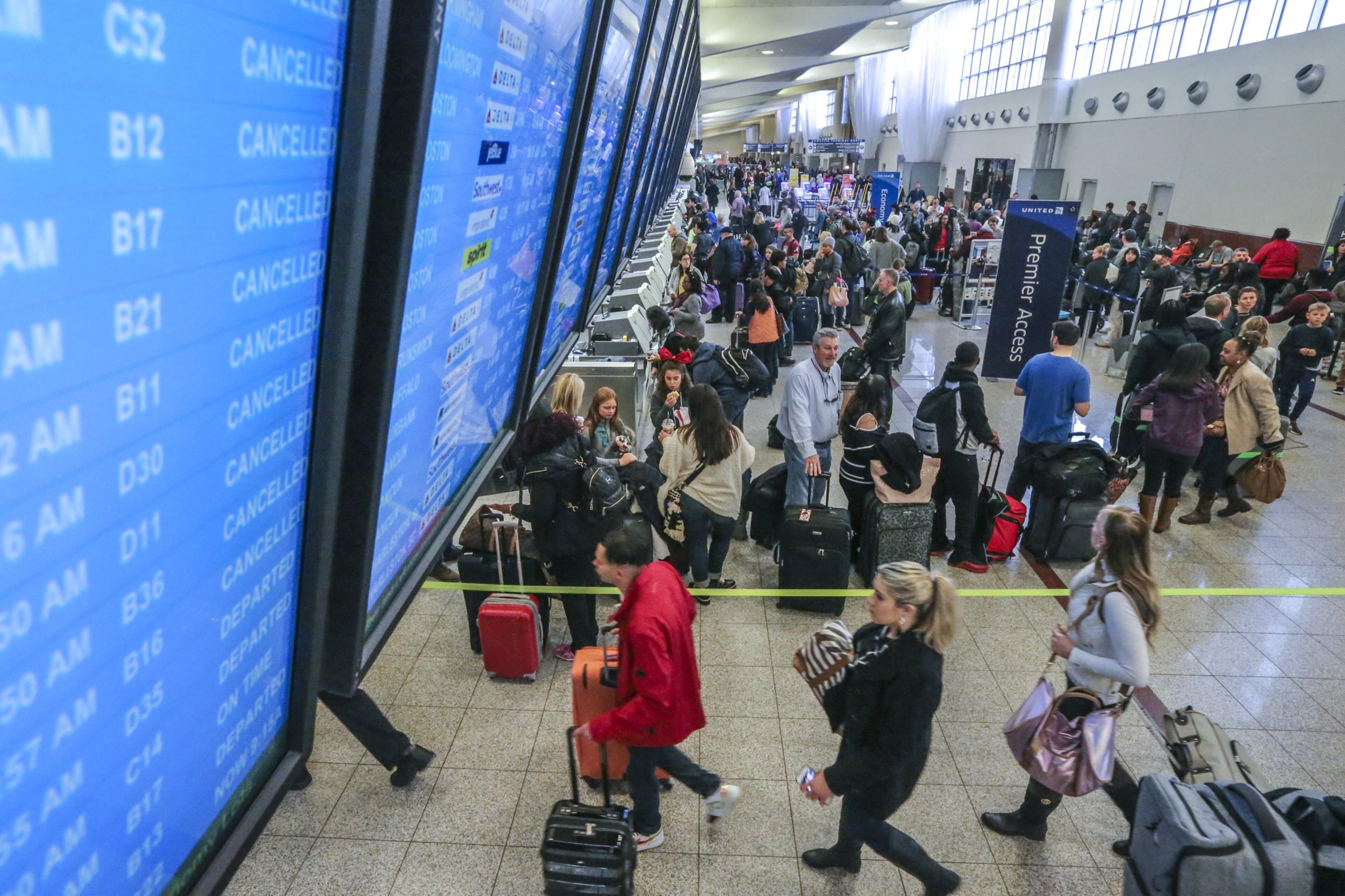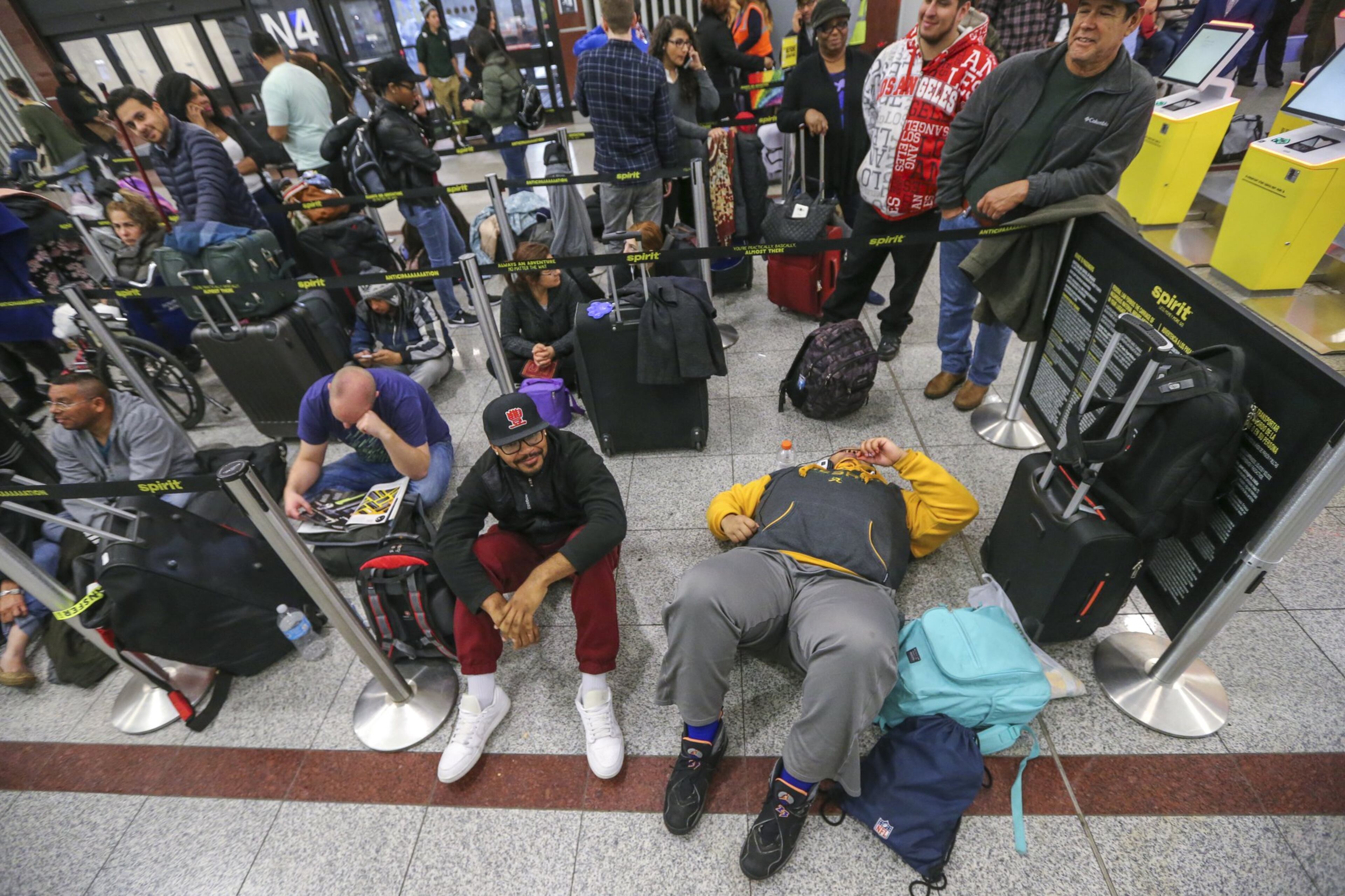Hartsfield-Jackson: $130 million generators will provide full backup
In an effort to avoid a repeat of the massive Atlanta airport power outage that halted travel at the world's largest airline hub in December, Hartsfield-Jackson International plans to spend $130 million on about 20 generators.
The generators will supply enough juice to power the entire airport, according to Hartsfield-Jackson officials. They say the equipment will be paid for with short-term financing that will ultimately be covered by airline rent payments.
But the generators are expected to take two-and-a-half years to get approvals, carry out the contracting process and install.

Meanwhile, Hartsfield-Jackson general manager Roosevelt Council said the airport has also made changes “to ensure that we would be able to identify where the problem is and respond a lot quicker.”
Once the generators are installed, they “will allow us to generate 100 percent redundant power,” Council said. The Atlanta city council finance committee this week voted unanimously in favor of the measure.
“It’s gotta be done,” said finance committee chair Howard Shook. “We all learned what happened.”
During the Dec. 17 outage caused by a fire in the airport's underground power supply, about 35,000 passengers were left in a darkened airport and about 100 planes filled with passengers were left out on the tarmac, while hundreds of flight cancellations disrupted travel for thousands more people around the nation and the world.
There were 15 emergency back-up generators around the airport for emergency lights and life-safety functions, providing a total of 15 megawatts of power. But generators for two concourses failed, and even the generators that did work are not enough to power the jet bridges for flights to continue. That brought flight operations to a halt and stranded passengers.
The generators would be able to boost emergency power to 65 megawatts — enough to supply roughly 49,000 homes, or the airport’s entire terminal facility. At least two generators would be installed on each concourse and could operate up to 48 hours. Airport officials said the diesel generators could also be refueled while running.
Council acknowledged there had never been a plan to install such backup generators in the airport’s $6 billion ongoing renovation and expansion plan.

The December outage “was the first occurrence we ever had that interrupted power the way that this one did,” Council said in response to a question from Shook.
Council said the plan for the new generators was developed in conjunction with Atlanta-based Delta Air Lines and other carriers, Georgia Power and the Atlanta Airlines Terminal Corp., an airline cooperative known as AATC that handles operations and maintenance of the airport’s terminal facility on behalf of the carriers.
“We had a discussion about what should redundant power look like,” Council said. “The biggest challenge we had to look at was these generators are pretty large.” One generator is about half the size of the city council’s committee meeting room, Council told the council members.
Emergency generators are subject to federal emissions standards and such a project may require air permitting, according to the Georgia Environmental Protection Division. It typically takes 45 to 150 days to get an air quality permit, Georgia EPD says.
The generators will be installed on the ramp areas of the concourses, near where airplanes park at gates. AATC will handle the installation, in coordination with Georgia Power.
Few alternatives
Council said in the airlines’ lease terms, the airlines agree to cover certain costs, including the operation of utilities in the terminal. In turn, airlines cover their costs with their revenues — such as air fares paid by passengers.
Congress is also considering legislation that would allow airports to tap into federal funds for generators.
Before voting for the measure, city council members questioned airport officials about alternatives to the $130 million for generators.
Council member Natalyn Archibong asked if beefing up the airport's solar generation could help with emergency power. The Atlanta airport installed its first solar array last year on top of a building at a new taxi hold lot.
Council said it was not feasible to use solar to generate 65 megawatts of power at the airport, unless there were a “humongous farm that we don’t have the space for.”

The airport had previously considered temporary portable generators. Council said the airport has an agreement with Georgia Power for portable generators that could be trucked in to the airport, which are suitable for limited incidents such as a power surge in one part of the airport.
Trucking in 20 generators to power the entire airport would mean “you have to have 20 flatbeds, 20 tractor-trailers, 20 sets of heavy-duty electrical electricians ready to put these things up,” said Hartsfield-Jackson interim assistant general manager of planning Tom Nissalke. “That’s not realistic.”
Nissalke said when Delta recently had to bring emergency power in for a baggage system issue, “that still took about six hours just to get that one smaller generator hooked up.” The logistical challenges include getting technicians into the secure part of the airport, he said.
“If you’ve got these emergency generators in place, 100 percent backup, it occurs almost instantly,” Nissalke said.

Powering the airport
- Hartsfield-Jackson has two terminals and seven concourses
- Each concourse requires 5 megawatts to 7 megawatts of power, while the terminals require more power
- The airport needs a total of 65 megawatts of power to operate
Source: Hartsfield-Jackson



